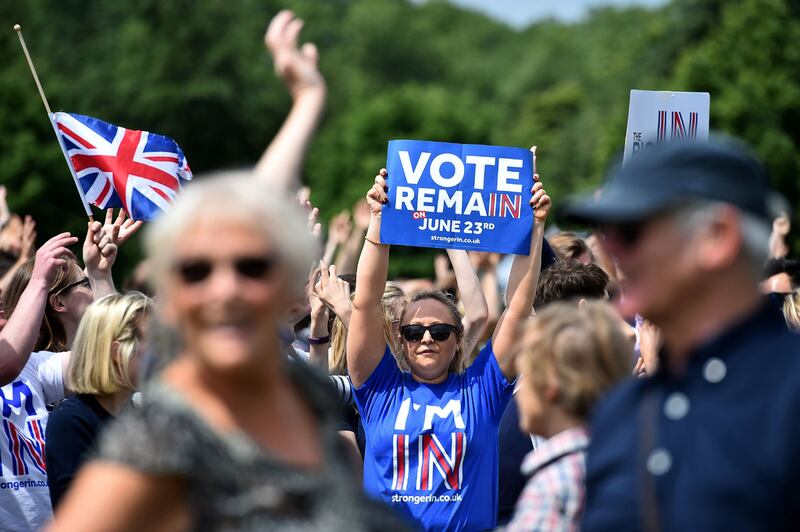As Vladimir Putin denied again on Saturday that he had any influence on the American presidential election of 2016, the full extent to which Russia interfered in the referendum on Britain's membership of the European Union last year has been revealed in studies of a network of Twitter accounts which posted regularly about Brexit throughout the campaign.
The technology title Wired has carried out research into a cache of posts from 2016 which shows how the Russian-based accounts - linked to the Kremlin-backed Internet Research Agency based in St Petersburg - posted about the referendum and European terrorist attacks, and made anti-Muslim slurs and attacks on refugees.
The accounts were identified as being Russian-linked by Twitter when representatives of the social media network provided data to the US congress, which is conducting inquiries into Russian efforts to manipulate the election that brought Republican Donald Trump to power.
The 29 accounts analysed by Wired, which were followed by 268.643 people and which were widely retweeted, expanding their audience, posted mostly about American politics, but also veered into British and European affairs.
One account, @SouthLoneStar, which Twitter confirmed to congress was a Russian account, tweeted to its 16,826 followers in June 2016 that: "I hope UK after #BrexitVote will start to clean their land from muslim invasion!" and "UK voted to leave future European Caliphate! #BrexitVote".
"The account occasionally wades into a European political discussion, which is not what I would expect a domestically-focused Conservative Texan to do under any circumstance," says Jonathon Morgan, chief executive of New Knowledge, which provided the data to Wired. @SouthLoneStar's Twitter biography identifies the account holder as a 'Proud TEXAN and AMERICAN patriot'.
CNN reported about another account, @PeterMagLob, which was ostenisbly run by someone from Germany who had used only German. On the day of the EU referendum, it switched to using English and began spewing out tens of tweets about the vote, tagging them with widely-used hashtags and attacking then prime minister British David Cameron.
Damian Collins, the British MP who is leading parliament’s inquiry into fake news, says the tweets “confirm what we’ve always believed [that Russian-backed accounts attempted to] influence political debate in the UK and also to insight hatred and turn communities against each other.
“I think it shows that Russian-controlled accounts have been politically active in the UK as well as America. This could just be the tip of the iceberg because we’ve only really just started looking and doing a proper detailed study of what accounts linked to Russian organisations have been doing politically.”
Mr Collins has written to Facebook and Twitter asking them to provide data on Russian-involved accounts. The firms will take part in hearings by early-2018 at the latest, Mr Collins hopes.
"I think we have a right to know if organisations in a foreign country, particularly in the case of Russia, are politically active," Mr Collins told Wired. "What is frightening, if you look at some of the studies that have come out of America, is just how many people a well-run campaign can reach at a relatively low cost and how you can target and bombard people with highly partisan messages and fake news."






